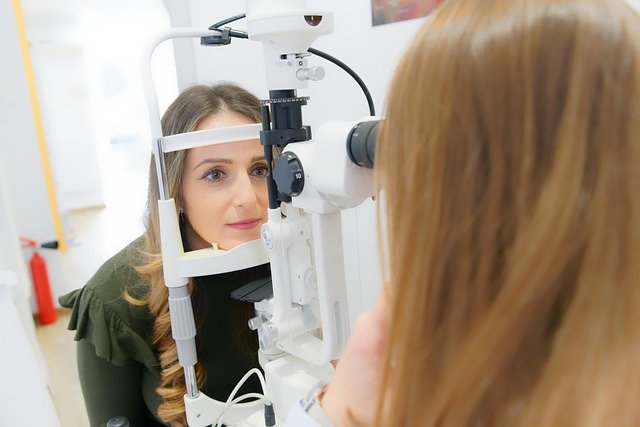Expert Legal Advice: Find the Right Lawyer for Your Needs
Navigating legal matters can feel overwhelming, especially when you're unsure where to start or what type of legal assistance you need. Whether you're dealing with a personal injury case, drafting a will, starting a business, or facing criminal charges, finding the right lawyer is crucial for achieving the best possible outcome. The legal system is complex, and having qualified legal guidance can mean the difference between success and costly mistakes that could impact your life for years to come.

What Type of Legal Guidance Do You Need?
Understanding your specific legal needs is the first step in finding appropriate legal assistance. Lawyers typically specialize in particular areas of law, and matching your situation with the right expertise is essential. Personal injury attorneys focus on accident cases and compensation claims, while family lawyers handle divorce, custody, and adoption matters. Criminal defense attorneys represent clients facing charges, and estate planning lawyers help with wills, trusts, and probate issues.
Business law attorneys assist with contracts, formation, and compliance matters, while real estate lawyers handle property transactions and disputes. Immigration attorneys specialize in visa applications and citizenship processes. Tax lawyers deal with IRS issues and tax planning. Identifying your specific legal issue helps narrow down the type of specialist you need, ensuring you receive relevant expert advice tailored to your situation.
How to Find a Lawyer in Your Area
Locating qualified legal professionals in your area requires strategic research and careful evaluation. Start by checking your state bar association’s website, which typically maintains directories of licensed attorneys with their specializations and contact information. These directories often include disciplinary records and professional standing, giving you insight into an attorney’s reputation and track record.
Personal referrals from friends, family, or other professionals can provide valuable insights into a lawyer’s communication style and effectiveness. Online legal directories like Avvo, FindLaw, and Martindale-Hubbell offer comprehensive listings with client reviews and professional ratings. Local courthouse personnel, while unable to recommend specific attorneys, can provide information about lawyers who frequently practice in their jurisdiction. Professional associations related to your specific legal need often maintain specialized referral services.
Essential Factors When Choosing a Lawyer
Selecting the right attorney requires careful consideration of multiple factors beyond basic qualifications. Experience in handling cases similar to yours is paramount – an attorney who regularly deals with your type of legal issue will understand common pitfalls and successful strategies. Review their track record, including settlements, verdicts, and case outcomes when possible.
Communication style and availability are crucial for maintaining a productive attorney-client relationship. During initial consultations, assess whether the lawyer explains complex legal concepts clearly and responds promptly to your questions. Consider their fee structure and ensure it aligns with your budget and expectations. Geographic location matters for court appearances and meetings, so choosing someone reasonably accessible is practical.
Professional credentials, including bar admission, continuing education, and any specialized certifications, indicate commitment to excellence. Check for any disciplinary actions through your state bar association. The lawyer’s workload and current availability will affect how much attention your case receives, so discuss their capacity to handle your matter effectively.
Understanding Legal Assistance Options
Legal assistance comes in various forms, allowing you to choose the level of service that matches your needs and budget. Full-service representation involves hiring an attorney to handle all aspects of your legal matter from start to finish. This option provides comprehensive support but represents the most expensive approach.
Limited scope representation, also called “unbundled” services, allows you to hire an attorney for specific tasks while handling other aspects yourself. This might include having a lawyer review documents, provide legal advice, or represent you in court for particular hearings. Many attorneys now offer hourly consultations for specific questions or guidance on self-representation.
Legal aid organizations provide free or low-cost services for qualifying individuals with limited income. Pro bono programs through bar associations connect eligible clients with volunteer attorneys. Online legal services offer document preparation and basic legal guidance at reduced costs, though they may not provide personalized advice for complex situations.
| Service Type | Provider Examples | Average Cost Range |
|---|---|---|
| Personal Injury | Morgan & Morgan, Cellino & Barnes | 33-40% contingency fee |
| Family Law | Local family attorneys | $200-500 per hour |
| Criminal Defense | Public defenders, private attorneys | $1,500-15,000+ per case |
| Estate Planning | LegalZoom, local estate attorneys | $300-3,000 per will/trust |
| Business Formation | Rocket Lawyer, corporate attorneys | $500-5,000 per entity |
Prices, rates, or cost estimates mentioned in this article are based on the latest available information but may change over time. Independent research is advised before making financial decisions.
Making the Most of Your Legal Consultation
Preparing thoroughly for your initial consultation maximizes the value of your time with potential attorneys and helps you make informed decisions. Gather all relevant documents, including contracts, correspondence, court papers, and any evidence related to your case. Create a timeline of events and write down specific questions about your situation, potential outcomes, and the attorney’s approach.
Be honest and complete in sharing information, as attorney-client privilege protects your communications. Ask about the lawyer’s experience with similar cases, their assessment of your situation’s strengths and weaknesses, and realistic expectations for timeline and outcomes. Discuss fee structures, payment schedules, and what services are included in their representation.
Take notes during the consultation and ask for clarification on anything you don’t understand. Request information about their communication practices and how often you can expect updates on your case progress. This meeting helps you evaluate whether the attorney’s expertise, approach, and personality align with your needs and comfort level.
Finding the right lawyer requires research, careful evaluation, and clear communication about your needs and expectations. By understanding the different types of legal assistance available, thoroughly researching potential attorneys, and preparing well for consultations, you can make an informed decision that serves your best interests. Remember that the cheapest option isn’t always the most cost-effective if it results in poor outcomes, while the most expensive attorney isn’t necessarily the best fit for your specific situation. Take time to find an attorney whose expertise, communication style, and fee structure align with your needs for the best possible legal representation.




